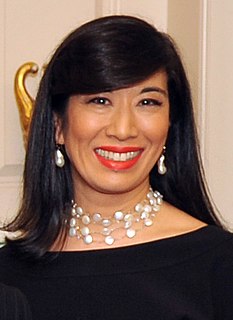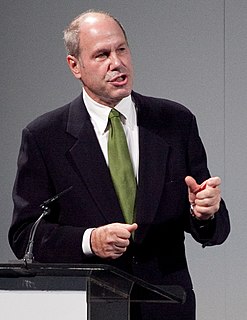A Quote by Brian Chesky
Somebody asked me 'what's the job of a CEO', and there's a number of things a CEO does. What you mostly do is articulate the vision, develop the strategy, and you gotta hire people to fit the culture. If you do those three things, you basically have a company. And that company will hopefully be successful, if you have the right vision, the right strategy, and good people.
Related Quotes
I argue that once it became clear that the most important function of the CEO was to develop and enact the corporate strategy, that often had the effect of distancing him from people below him in the organization. It also encouraged the idea that if a CEO were a great strategist for a company in one industry, he would probably be a great strategist in another industry. And that usually hasn't proved to be the case.
Many times when people have a vision, they think in terms of a big vision - I want to take my city for Christ. But the problem with many pastors and this type of vision is this: they haven't developed the strategy to fulfill that vision. A pastor preaches a dream or vision to his/her people, they get excited for a week, a month, or a couple of months, but there is no strategy, planning, or process to fulfill that vision.
People believe that management consultants are mostly useless parasites. Up until about 1980 it was consultants more than anyone else who came up with the critical concepts behind strategy. The history of strategy suggests there are lots of things consultants can do for a company that the company can't typically do for itself.
An exceptional company is the one that gets all the little details right. And the people out on the front line, they know when things are not going right, and they know when things need to be improved. And if you listen to them, you can soon improve all those niggly things which turns an average company into an exceptional company.
There are three things you need to do as a CEO-founder. Think strategically, drive design, and drive technology. Some people who are really good at one can build a pretty foundational company. Most people who are very successful are good at two. But Jack is the only person in the Valley I've met who's all three. He's a first-rate strategist, a first-rate designer, and a first-rate technologist.
You don't think, when you start a company as the founding CEO, that if your venture actually works, you end up with three jobs: founder, CEO, and chair of the board. The first eight years at Bonobos, I have learned a lot about the tension between the first two. It didn't even occur to me that I had the third job until much later.

































